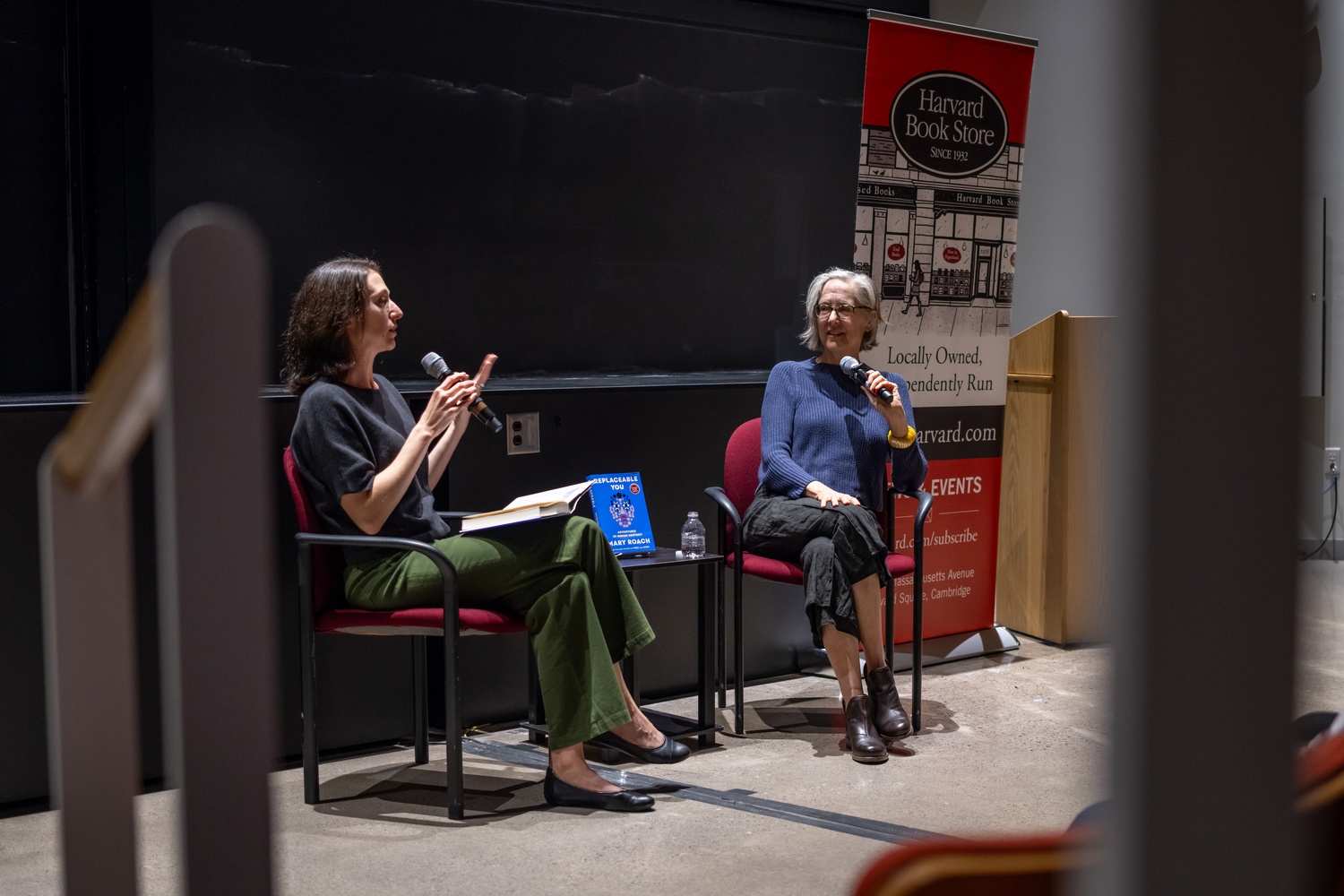
News
Summers Will Not Finish Semester of Teaching as Harvard Investigates Epstein Ties

News
Harvard College Students Report Favoring Divestment from Israel in HUA Survey

News
‘He Should Resign’: Harvard Undergrads Take Hard Line Against Summers Over Epstein Scandal

News
Harvard To Launch New Investigation Into Epstein’s Ties to Summers, Other University Affiliates

News
Harvard Students To Vote on Divestment From Israel in Inaugural HUA Election Survey
Bestselling Author Mary Roach Encourages Humor and Transparency In Biotech

New York Times bestselling author Mary Roach encouraged the use of humor to break down barriers in graphic and taboo medical discourse while promoting her new book “Replaceable You: Adventures in Human Anatomy” at a Harvard Science Book Talk Wednesday evening.
At the event, which took place at the Science Center, Roach discussed the book she published last month. Her book covers ethical concerns about the rise of biotechnology that can replace malfunctioning limbs or other body parts — especially with rapid innovation in stem cell research and prosthetic devices.
During the book talk — moderated by a representative of the Harvard Bookstore — Roach encouraged a balance of humor and professionalism to bring transparency to sensitive and important conversations around evolving biotechnology, while empathizing with the human instinct to avoid blunt discourse.
“We are all bodies, and to learn about horrific things happening to bodies is a disturbing thing,” Roach said. “Humor diffuses tension, and so it’s a bit of a coping mechanism.”
In her talk, Roach provided examples of how she used humor in her book to describe innovations in medicine and their historical origins. This included using vivid and silly imagery to explain advancements in skin grafts and the practice of zoografting — the transfer of animal skin to human bodies.
Beyond her own use of humor in approaching these topics, Roach praised social media for its role in decreasing stigma around medical accessories like prosthetics and ostomy bags — an adhesive bag that collects waste excreted through an artificial hole in the abdomen made during surgery.
“How horrible was that? To be afraid to go out, to be afraid to be away from the bathroom,” she said. “So the payoff is that you have your life back.”
At the event, Roach also shared insights on her research and bookwriting process and said she often cold-emailed research institutes or simply showed up anywhere there was a possible lead.
Elaborating on this, Roach recalled one instance when she was denied permission to view a NASA experiment on cadavers but showed up anyways.
“People don’t want to turn you away when you travel a long way and pay for a hotel and you’re there,” she said.
Hence, Roach urged young scientists to be persistent in their research and take the necessary small steps to begin the process.
“All you can really do is just send out an email,” Roach said. “I find that people, whether scientists or anyone, really like to talk about their work.”
Describing her own approach and offering advice for aspiring researchers, Roach described a simple method: not accepting no for an answer.
“I find that people don’t like to say no three times,” she said. “Just write back a third time.”
Want to keep up with breaking news? Subscribe to our email newsletter.
